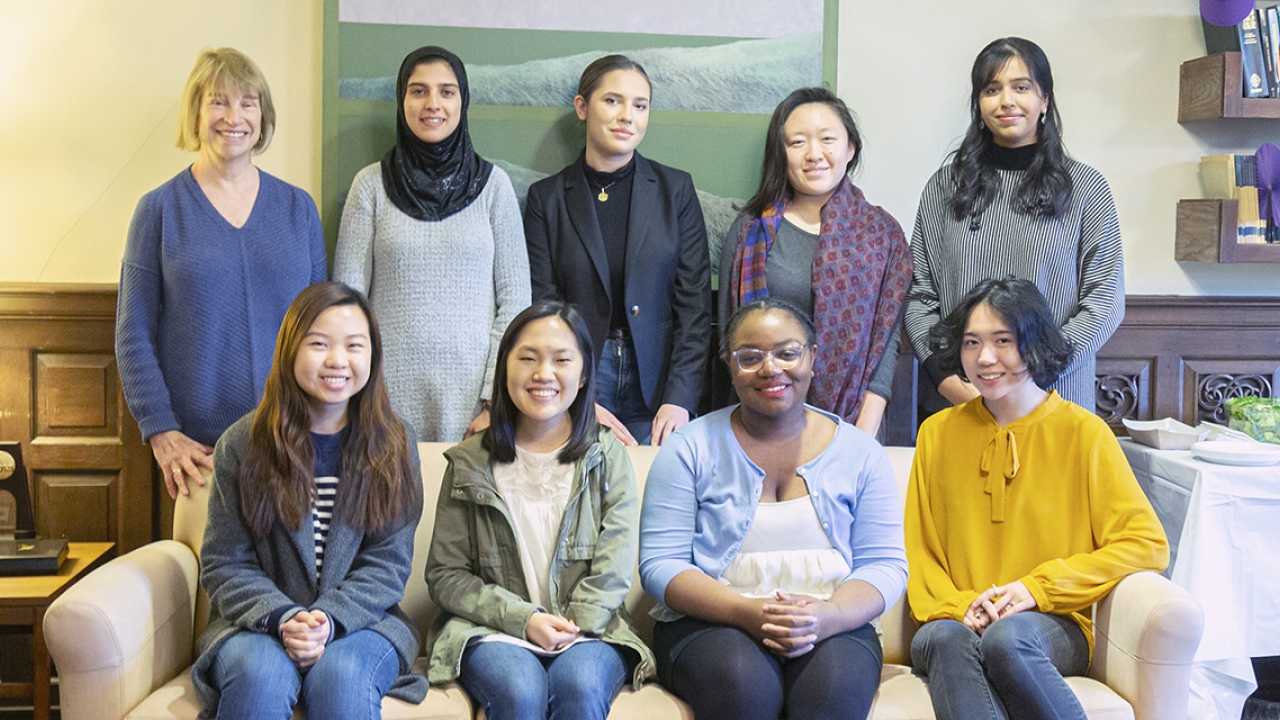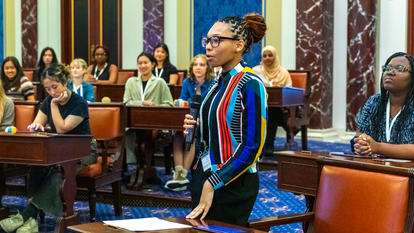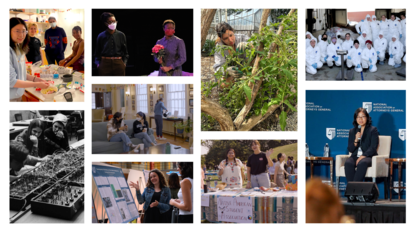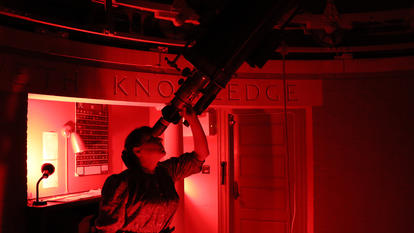Recipients of Second Annual Samuel and Hilda Levitt Fellowships Announced

Catherine Gooding ’19 received a Samuel and Hilda Levitt Fellowship in 2018, the inaugural year of the program. It allowed her to return home to Morgantown, West Virginia, to research a teachers’ strike in which more than 22,000 public school teachers participated.
Gooding, currently an AmeriCorps VISTA Volunteer in the West Virginia University Honors College, said the $3,500 stipend gave her “an opportunity to take the summer off to focus on my research, and it gave me the space to really explore this issue which speaks to so many of the challenges we face in West Virginia. I was able to develop my own sense of activism as I thought critically about the issues that affect me, my family, and my community.”
The fellowships, named for the Levitts by their daughter Andrea Levitt ’71, the Margaret Clapp ’30 Distinguished Alumna Professor Emerita of French and Linguistics, support nine honors students, three each in the humanities, the social sciences, and the sciences.
Nathalie Bolduc ’19, also a 2018 fellowship recipient, used her award to research food security, agricultural policy, and the right to food in Bolivia, Kenya, Nepal, and Ukraine with a particular focus on policy options that would help maintain food security under climate change.
She now studies food policies in Asia, Africa, Latin America, and the Caribbean as part of her master’s degree in international development at Sciences Po’s Paris School of International Affairs.
The 2019 awardees have just been announced and these are the recipients of the 2019 Samuel and Hilda Levitt Fellowships:
Chelsie Ahn ’20, education studies and sociology, is exploring the experiences of students attending an alternative high school in Boston. She will investigate how different forms of cultural and social capital operate in this setting.
Maheen (Mahi) Akram ’20, economics and political science, is examining the presence of the Indian army in Kashmir and its influence on militancy among Kashmir’s youth.
Edilia Foster ’20, philosophy, is studying testimonial smothering, which occurs when people decide not to speak publicly because they realize that their message will be misinterpreted by their audience in a way that is harmful. Silencing is a type of injustice because a person’s communicative capacities are compromised.
Rose Horowitz ’20, neuroscience and psychology, is studying the tendency of people to rely on misinformation even when it has been proven to be false.
Nayab Khan ’20, history, is researching the nature of Pakistan’s involvement in the Soviet-Afghan conflict and the development of its rigid legal system after the war.
Christie Li ’20, sociology, is analyzing how second-generation young professionals with a cultural connection to Chinatown, in particular many young professionals in Silicon Valley, negotiate the gentrifying cultural-commercial landscape of San Francisco’s Chinatown.
Qing Hai (Amy) Li ’20, mathematics, is researching some unsolved questions in topology, specifically the structure of partial configuration spaces.
Bang Nhan ’20, chemistry and philosophy, is investigating the synthesis and characterization of multilayered gold nanoparticles with alternating organic and inorganic layers.
Andjela (Angie) Padejski ’20, cinema and media studies, will complete a video documentary exploring the transformation of the female identity from the angle of the Balkan entertainment industry.
Photo caption: Recipients of the 2019 Samuel and Hilda Levitt Fellowship pose together with Wellesley professor Andrea Levitt.



